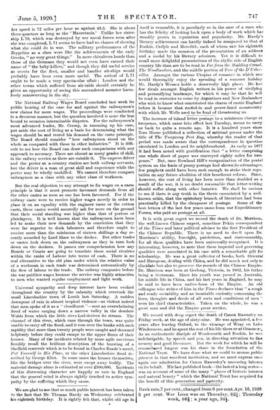But the real objection to any attempt to fix wages
on a caste principle is that it must promote incessant demands from all the other castes as soon as one has been favoured. For if the railway caste were to receive higher wages merely in order to place it on an equality with the engineer caste or the cotton caste, these castes would assuredly ask for more on the ground that their social standing was higher than that of porters or platelayers. It is well known that the railwaymen have been led to make their new demands by the conviction that they were far superior to dock labourers and therefore ought to receive more than the minimum of sixteen shillings a day re- cently awarded by Lord Shaw to the docker. But other trades or castes look down on the railwaymen as they in turn look down on the dockers. It passes our comprehension how any Boards or Courts are going to translate these social rivalries within the ranks of Labour into terms of cash. There is no real alternative to the old plan under which the relative value of a workman in each trade was determined automatically by the flow of labour to the trade. The railway companies before the war paid low wages because the service was highly attractive to men who wanted regular employment and light work.


































 Previous page
Previous page